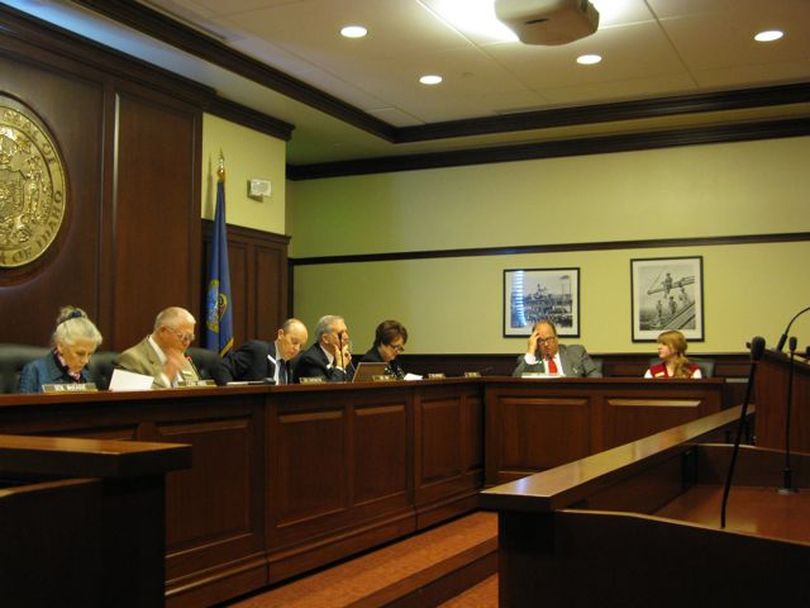Senate considering big changes in its ethics rules, including more secrecy

The Senate Judiciary Committee this morning took up three changes to Senate rules, including a major revision of its ethics rules. Among the changes: More secrecy. Under the proposed changes, ethics complaints would be secret until the bipartisan Senate Ethics Committee votes that they are valid and should proceed to a full investigation; the Ethics Committee would meet in closed-door executive session to deliberate on that.
Sen. Nicole LeFavour, D-Boise, noted that that means if the panel deadlocked 3-3 along party lines, the complaint would be dismissed - and would never become public. "The effect of that would be then for one party to be able to squash the complaint of another without any notice of the process," she said. Senate Majority Leader Bart Davis, R-Idaho Falls, said he didn't think that would happen, noting that the vote to dismiss ethics charges against Sen. Monty Pearce this year was unanimous. "I have chosen not to live in the world of fear on this issue, but by making sure that both parties have equal buy-in in the process," Davis said. "I like the idea that both parties take ownership of the ethics of this body."
Other changes include a more clear requirement that conflicts of interest be disclosed in committee as well as on the floor of the Senate; and more specific grounds for bringing ethics complaints, including conduct unbecoming a senator. Sen. Les Bock, D-Boise, said, "I think all of this is a step in the right direction. I do think that our goal should be to have an independent commission, but I do think that in the interim this is a good step, and I appreciate all the hard work that has been done on it." Another change removes a clause in Senate rules that requires a two-thirds vote on the floor to dismiss a Senate employee; Davis said that's never been done, and such matters generally are handled by the Senate president pro-tem.
Two of the three resolutions, the employee dismissal one and the expanded disclosure rule, were approved on unanimous votes in the committee; the ethics revision rule drew one dissenting vote from LeFavour. The rules resolutions now move directly to the full Senate for final passage.
